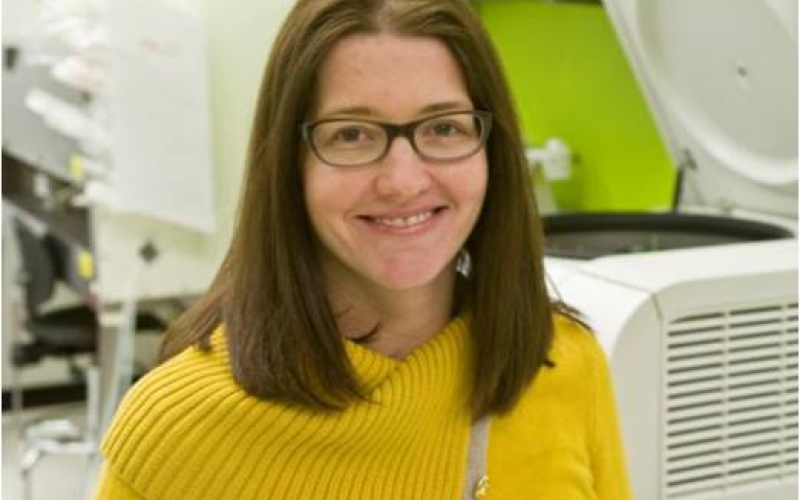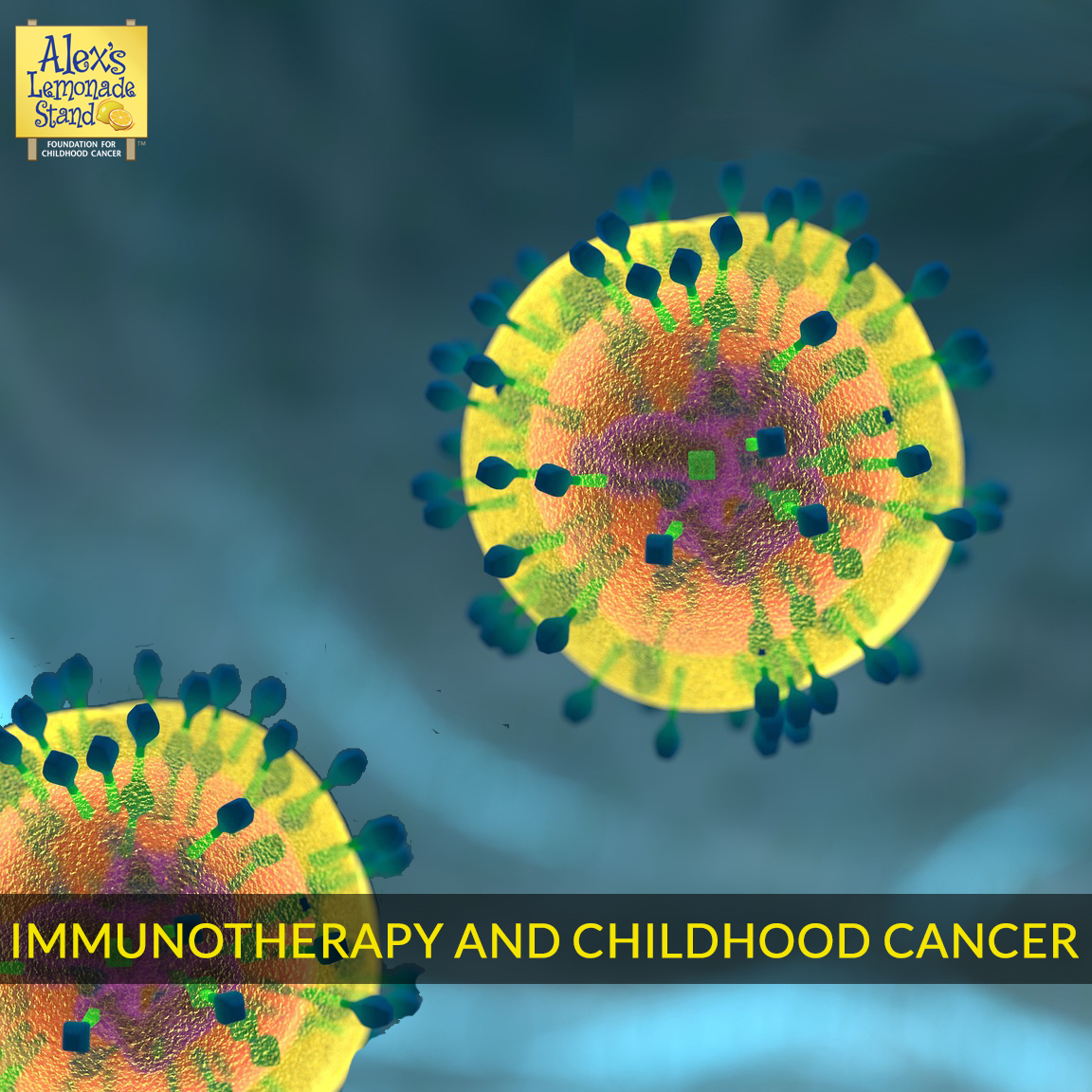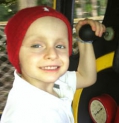
CAR T cell immunotherapy could offer promise for many children battling relapsed ALL. ALSF-funded Young Investigator, Dr. Rebecca Gardner at Seattle Children’s Hospital, pictured above, helped a young girl reach remission for her relapsed leukemia.
More and more research is focused on harnessing the body’s immune system to target and destroy cancer cells. One type, known as CAR T cell immunotherapy, is offering new hope and cures to patients with relapsed acute lymphoblastic leukemia (ALL). Here’s everything you need to know about CAR T cell immunotherapy:
What is immunotherapy?
Immunotherapy recruits the body’s own immune system to identify and kill cancer cells. Cancer cells hide from the immune system—convincing the body that they belong. As a result, cancer cells can grow without interference. Immunotherapy treatments activate the individual’s immune system so it can see cancer cells among the healthy cells, stop them from growing and kill existing cancer cells. 
What are T cells?
T cells are a type of white blood cell that works with the body’s immune system to help identify and destroy foreign invaders—like a virus. T cells appear when the body identifies an infection or injury; they replicate quickly in order to attack. Once their job is complete, the T cells decrease in number. When a child has leukemia, the T cells cannot see the cancer cells and therefore, they do not go to work fighting the cancer cells, as they would a virus.
What is the “CAR” part of CAR T cell immunotherapy?
CAR stands for “Chimeric Antigen Receptor.” This lab-created cell modification takes the blindfold off T cells, allowing them to recognize cancer cells.
How does CAR T cell immunotherapy work?
Making a T cell “see” cancer cells begins with collecting a child’s T cells. Then, those T cells are genetically modified with the addition of the chimeric antigen receptor (that’s the CAR part). The chimeric antigen receptor allows T cells to see the cancer cells. Once the child receives the newly modified T cells, the immune system goes to work. The T cells multiply, attacking the cancer until it is gone. CAR T cells have shown remarkable success in the treatment of relapsed leukemia and have the potential to be a tool in the fight against other childhood cancers such as brain tumors and neuroblastoma.
What are side effects of CAR T cell immunotherapy?
Modified T cells release cytokines, which are chemical messengers that help the T cells destroy foreign invaders. Sometimes, there can be a rapid release of cytokines and this can cause extremely high fevers and extreme drops in blood pressure. Several researchers have used complementary therapies to stop cytokine release syndrome and are also working to understand the genetic drivers of cytokine release syndrome.
What potential does this have for other types of cancer?
For now, CAR T cell immunotherapy offers the most promise for leukemia. However, understanding how modified T cells attack blood cancers can lead to more discoveries on how these cells could also lead to cures for solid tissue tumors.
Who has CAR T cell immunotherapy helped?
CAR T cell immunotherapy could offer promise for many children battling relapsed ALL. In our Spring 2017 newsletter, we shared the story of how ALSF-funded Young Investigator, Dr. Rebecca Gardner at Seattle Children’s Hospital helped a young girl reach remission for her relapsed leukemia. Read more here.

